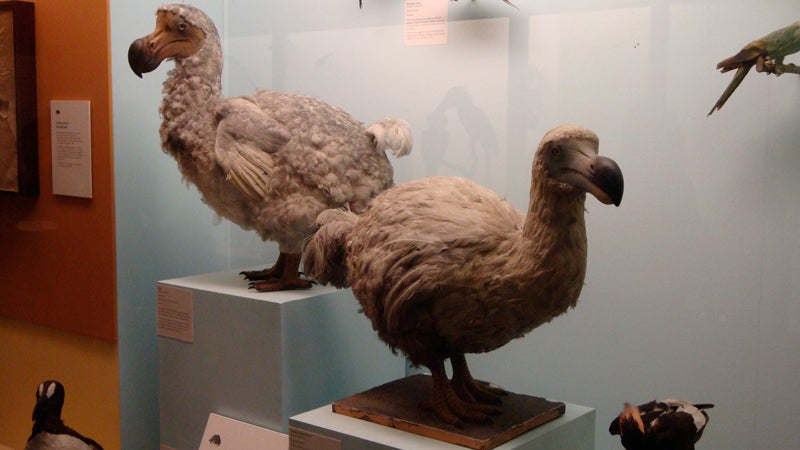According to a study published this week in , humans are directly responsible for 322 animal extinctions over the past 500 years, with two-thirds of those occurring during the past two centuries. Amphibians and invertebrate species have been especially hard hit by mankind’s destructive habits.
The problem is becoming more severe with our own exponential population growth, which, if left unchecked, will hit 27 billion by 2100, according to Rodolfo Dirzo, a co-author of the study and professor of environmental sciences at .
One obvious issue is that humans are unlikely to prioritize saving animal populations over more immediate concerns. In the same issue of Science, Haldre Rogers and Josh Tewksbury , “Animals do matter to people, but on balance, they matter less than food, jobs, energy, money, and development. As long as we continue to view animals in ecosystems as irrelevant to these basic demands, animals will lose.”
The key may be to argue that by saving animal populations, we are acting in our own best interest. The preservation of wildlife, for instance, is frequently what sustains tourism-based economies.
“Whale watching in Latin America alone generates over $275 million a year,” Tewksbury says. Meanwhile in the United States, Tewksbury claims that shark watching results in $314 million per year and directly supports 10,000 jobs.
Impressive as these numbers are, they become insignificant when compared with places like Namibia, where 73 percent of outside visitors are nature-based tourists, whose money accounts for 14.3 percent of the country’s gross domestic product.


